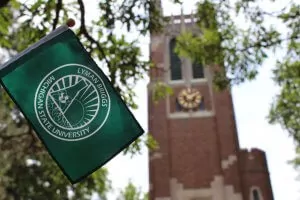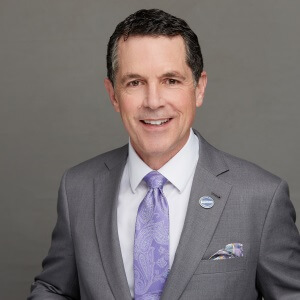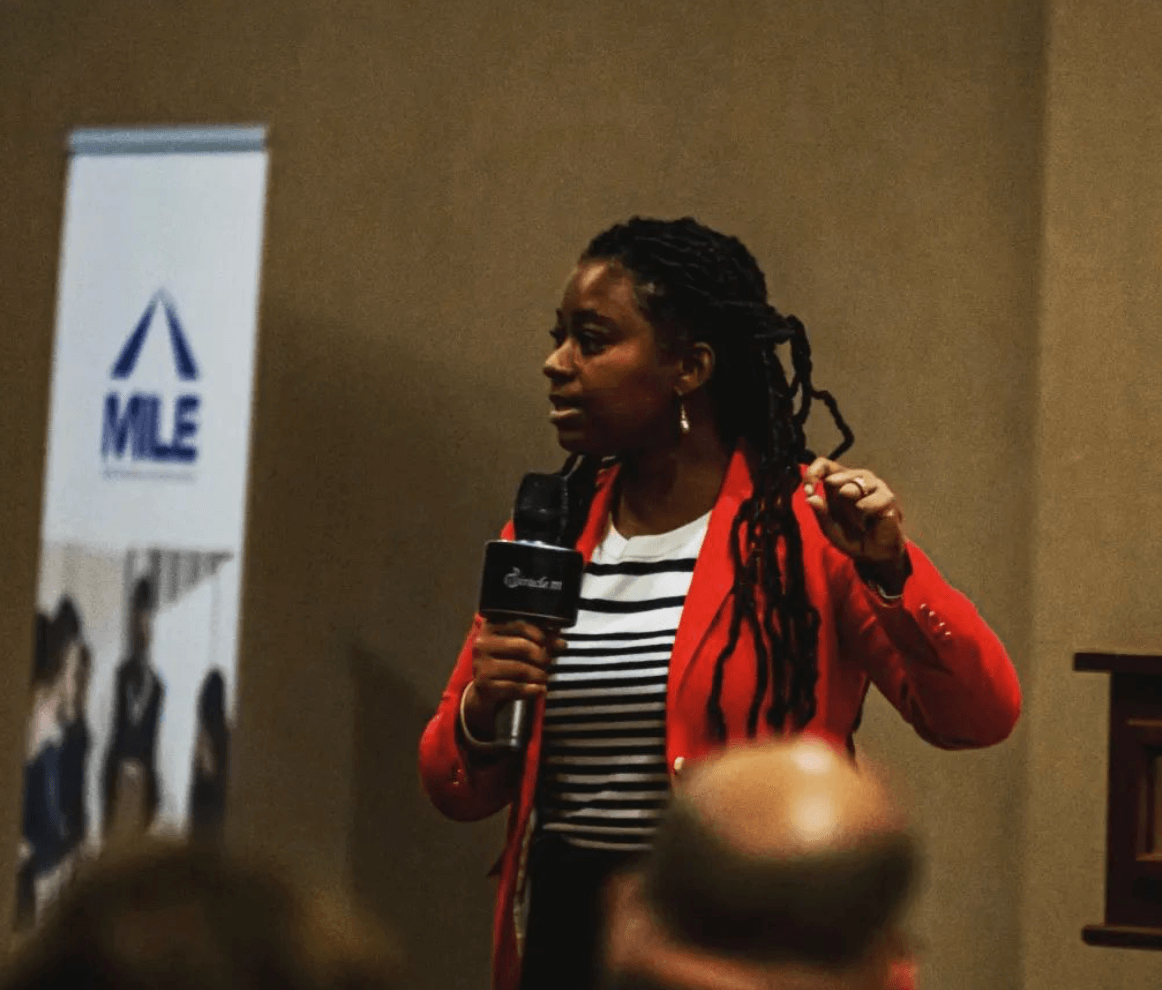Networking & Mentorship
Nurturing Success: Formal Mentorship at Fogelman College of Business and Economics
Authored by Kurt Kraiger, PhD Located in the heart of Memphis, the Fogelman College of Business and Economics is a […]
Solutions
Helping higher education create transformational change across campus.
See AllFor Universities
Admissions & Enrollment
Maximize enrollment by increasing yield & reducing melt
Experiential Learning
Scale High-Impact Practices for student success
PathwayU
Redefine how students pick majors & careers with PathwayU
Student Services
Increase retention & persistence to graduation
Career Services
Improve career readiness & career navigation
Industry Partners
Connect universities & corporations for project-based learning
Alumni & Advancement
Grow alumni engagement & the philanthropy pipeline
Success Stories
Read how schools leverage PeopleGrove in their communities.
See All Stories
University of Kansas
How University of Kansas scales career services to their 375,000 alumni

Michigan State University
How Michigan State ensures academic and career success for students

University of Miami
How the Toppel Career Center joined forces with alumni to provide career guidance to students
Resources
Explore blogs, webinars, whitepapers, and more resources to enhance how students and alumni connect.
See All ResourcesBlog
Read posts about how PeopleGrove meets higher education’s ever-changing needs at every turn.
Events
In-person or online, join PeopleGrove for unmatched experiences, conferences, webinars, and more.
Research Library
A collection of stories, events, research, and best practices to transform learners’ experiences.
Super Mentors Book
The ordinary person’s guide to asking extraordinary people for help.
Innovators Community
Learn from thought leaders and practitioners in both higher education and workforce development.
About
PeopleGrove is made for learners by learners. Everyone here makes it possible for students and alumni to succeed.
Learn MoreCareers
Be a part of the next big thing for learners everywhere and start making an impact. Join us today!
Contact
Want to get in touch? Have a question? We’d love to hear from you. Connect with us.
Networking & Mentorship
Authored by Kurt Kraiger, PhD Located in the heart of Memphis, the Fogelman College of Business and Economics is a […]


Authored by Kurt Kraiger, PhD
Located in the heart of Memphis, the Fogelman College of Business and Economics is a beacon of opportunity for its diverse student body. For many, pursuing a business degree promises a brighter future and greater social mobility. To support these ambitious students, a remarkable mentoring program has been established, connecting them with accomplished business leaders. The program nurtures a bond that proves beneficial for both mentors and proteges. As we celebrate National Mentorship Month, let's explore how mentorship has become a cornerstone of success at Fogelman.
Fogelman College of Business and Economics prides itself on being a college of opportunity, primarily serving local Memphians who intend to stay in the community post-graduation. Many view a business degree as their ticket to a career with enhanced social mobility compared to their parents. To assist these students on their career journey, a mentoring program has been established. This program pairs ambitious students with local professionals, matching accounting students with accountants and human resources (HR) students with HR professionals. Often, these mentors are alumni who volunteer their time to give back and strengthen the talent pipeline for their organization.
The mentoring program at Fogelman is a formal mentorship program, but many institutions provide access to other forms of mentorship for their students. These include:
Let's explore how a formal mentoring program is working at Fogelman. Throughout the academic year, mentors (business leaders) and protégés (students) engage in two key activities.
First, they convene once a month as a group. These sessions focus on developing essential skills such as interpersonal communication, collaboration, and problem-solving. An example is the annual speed mentoring event, where protégés receive personalized business cards displaying their university logo, career objectives, and contact information. Local business leaders guide them in initiating professional conversations. Protégés then practice these interactions with mentors they have not met before, honing their networking skills through practice and feedback.
The second monthly activity involves one-on-one meetings between mentors and protégés, usually initiated by the mentor. These sessions often entail skill-building, experiential learning activities, resume reviews, or mock interviews. Mentors may also take their protégés to professional association luncheons to practice networking or arrange informational interviews and job shadowing opportunities with colleagues in different roles.
These one-on-one meetings are not just about skill-building; they can also be enjoyable bonding experiences. Activities may include sharing meals, hiking, or attending sporting events. One memorable example involved a mentor arranging a professional photoshoot for a protégé, resulting in great profile pictures and fun "outtakes."
The program's goals are clear: to make protégés more career-ready and confident in their job search or internship applications. They gain a deeper understanding of their career options and insider insights into what distinguishes successful job candidates or employees.
Protégés also benefit from a supportive environment to work on essential skills, as demonstrated by one timid student who struggled with eye contact while speaking. In response to COVID disruptions, this student was invited back for a second year and paired with a mentor who was an executive speech coach. Through the mentorship, she learned to present herself confidently, aced an interview, and secured a coveted Human Resources position.
Many employers providing mentors see it as a recruiting strategy, particularly for sophomores, enabling them to identify potential interns. Some host meetings to showcase their business and leadership to students. Others participate in mentorship for their managers' professional development, as mentorship skills can translate back to their careers.
However, mentors often have a different motivation. It's a rewarding experience to work with talented, self-invested students and pay forward the mentorship that shaped their own careers. For mentors of color, it's an opportunity to open doors in ways they may not have experienced before. Mentorship activities are engaging, informative, and conducive to meaningful relationship-building, and are often accompanied by food, a guaranteed way to attract students.
This mentorship program's impact is evident in the transformation of students and the benefits mentors gain. The results and feedback from this program demonstrate its effectiveness.
And in our research, we further profile how mentorship can improve outcomes for students and alumni in The Social Capital Impact Report. Highlights include:
In closing, consider starting your mentorship program. It's a win-win relationship that benefits students, local employers, and dedicated volunteer mentors. Fogelman College's formal mentorship program exemplifies inclusivity and opportunity, bridging gaps, fostering personal growth, and paving the way for promising careers. As we celebrate National Mentorship Month, let this program serve as a testament to the immeasurable power of all types of mentorship, and the opportunities it unlocks for students.
PeopleGrove’s end-to-end solutions support all mentorship. For additional reading or information on mentorship opportunities, please explore our resources and solutions.
About the Author
Dr. Kurt Kraiger is a Professor and Chair of the Department of Management at the University of Memphis. He received his B.A. in Psychology from the University of Cincinnati in 1979, and his Ph.D. in Industrial-Organizational Psychology from The Ohio State University in 1983.Dr. Kraiger conducts research on learning in ill-structured environments such as online learning and mentoring. His principal contributions to the learning and development literature have been construct and theory development. Through June of 2023, he has edited three books on training, published over 70 scholarly papers, given over 40 invited talks, and made over 110 scientific presentations. His work has been cited over 15,000 times and his H-Index is 37. He has also received over $3.2m in research funding during his career. Dr. Kraiger is a Fellow and former President of SIOP, and a fellow of the Association for Psychological Sciences. An expert in the science of workplace, his research and presentations offer empirically-supported recommendations for improving L&D practice and developing more effective mentors.
Browse more research and insights.

Career Services
Inside Higher Ed and College Pulse survey highlights deficiencies and areas students are seeking improvement. This piece was authored […]
5 min read

Value of Higher Education
Our Insights from Strada’s “Talent Disrupted” Report On February 21, Strada and Burning Glass released a new study, titled “Talent […]
6 min read

Value of Higher Education
Three Key Insights from the National Student Success Conference This year, we had the privilege of joining education professionals, thought […]
3 min read